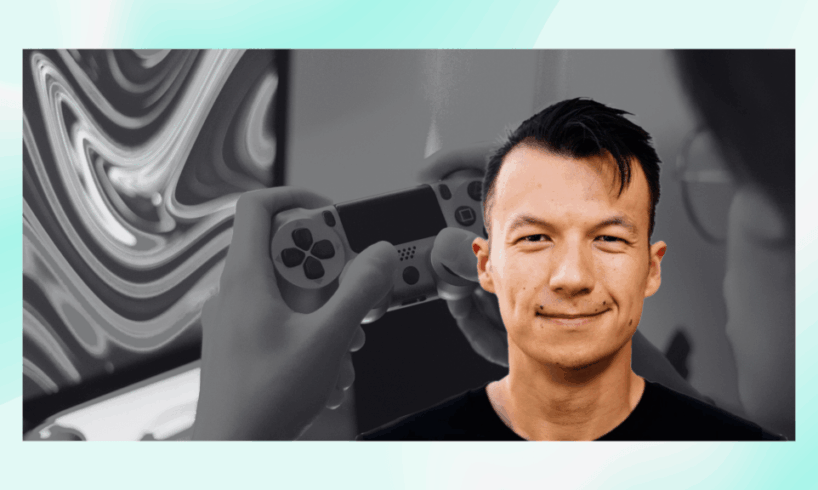
In my teens, I was a gaming nerd.
I spent thousands of dollars and hours on my Warhammer 40k miniatures, Pokémon cards, and pirated computer games we would get from our trips to Malaysia.
Shoot em ups or role-playing games were never my thing — it was always the strategy games that I enjoyed the most. Titles like Age of Empires, Command and Conquer, Warcraft … I could go on.
Fast forward 20 years, I still adore games.
I was recently hooked on the multiplayer strategy game The Battle of Polytopia. Polytopia has all the features of an epic strategy game — technology tiers, constrained resources, and multiplayer battles with the goal of building an empire.
Smarter business news. Straight to your inbox.
For startup founders, small businesses and leaders. Build sharper instincts and better strategy by learning from Australia’s smartest business minds. Sign up for free.
By continuing, you agree to our Terms & Conditions and Privacy Policy.
I came across Polytopia via Walter Issacson’s biography on Elon Musk.
Musk spends hours playing the game — once he was even late for a business meeting because he was so consumed in it, Isaacson wrote.
Musk has gleaned life lessons from the game, which he called “Polytopia Life Lessons”.
These include “do not fear losing” and “play life like a game”.
“You will lose,” Musk said. “It will hurt the first 50 times. When you get used to losing, you will play each game with less emotion.”
I’ve spent way too many hours playing Polytopia. I recently deleted it from my phone because I got addicted to it and it was affecting my work (haha).
Related Article Block Placeholder
Article ID: 292605
Sam Bankman-Fried
On the theme of notorious tech billionaires — I just finished reading Michael Lewis’ book on Sam Bankman-Fried (SBF) Going Infinite, which details the story of SBF’s life and the saga of the failed FTX.
Similar to Musk, SBF is also a huge gaming nerd of strategy games like League of Legends, Magic: The Gathering and Storybook Brawl.
Hilariously, he was so obsessed that he would often play video games during live media interviews, even during a pitch meeting with investors from Sequoia Capital.
My reflection on games
The connotations of games are typically of leisure, fun, and enjoyment; a form of salvation from life’s stresses.
The truth is that games are so much more than this.
In a way, life can be seen as a game.
The difference, however, is these life games can be played in two very different ways.
These two games can be finite or infinite, as explored by philosopher James Carse.
Finite games have specific boundaries. They have a clear beginning, a playing field, and a certain number of players. In addition to these restrictions, they are dictated by a set of rules — rules that are pre-established and mutually agreed upon by the players. Once the rules are established, the objective is to win.
When there’s a winner, the game is over. It is zero sum.
If this doesn’t sound like the real world to you, consider an election. The election rules are set by a constitution, the winner is decided by a vote, and some practices are permitted and some not (eg rigging/fraudulent votes).
Infinite games, on the other hand, are the polar opposite.
Where a finite game is played for the purpose of winning, an infinite game is played for the purpose of continuing the play. Infinite games are not bound by any external or internal restrictions. Anyone can participate in this game, anytime, anywhere.
Consider music composition. There will never be ‘the world’s best artist’, because there will always be new composers writing new and inspiring music. No artist makes art to win or be the best. Rather, the compositions are open invitations for more people to join the game.
Finite players strive for domination, infinite players strive to coexist through playing
The desire to dominate accompanies finite players everywhere. Finite players aim to win in order to gain control over others. They flaunt their titles and exhibit their power and superiority. They are in the business to conquer, disrupt and crush their competitors.
The infinite player, on the other hand, is not concerned with beating others because to them, only the game matters. As a result, infinite players aren’t fixated on a particular outcome or result. They seek to coexist and offer their partners their perspective. They are accepting of new knowledge and open to having their minds changed. Their objective is to continue playing, and are therefore malleable to new approaches.
The game of business
Business is an infinite game. Anyone can participate. The goals are not fixed. The rules are unknown and shifting.
Related Article Block Placeholder
Article ID: 320671
Although the game of business is infinite, most organisations play finite ones. The leaders think in finite terms, bound by time, ego and expectations of their shareholders. The focus is on profit, market share, and share price.
The greatest organisations play an infinite game. Tesla is an example of this. Elon Musk is not playing to win — to disrupt competitors, to kill the automotive industry as we know it. The goal is to create sustainable transport.
To create the most compelling car company of the 21st century by driving the world’s transition to electric vehicles.
Elon Musk
A finite player would never share their secrets with their competitors. Unlike Tesla, which in 2014, open-sourced its patents to the world.
People saw this as absurd. Musk, however, knew it was necessary.
Tesla Motors was created to accelerate the advent of sustainable transport. If we clear a path to the creation of compelling electric vehicles, but then lay intellectual property landmines behind us to inhibit others, we are acting in a manner contrary to that goal.
Musk is not distracted by competition. His focus is to rally everyone towards his vision.
How to play an infinite game
Everyone can choose to play a finite or infinite game. Here are some guiding principles.
See boundaries as horizons
Where finite players play within boundaries, infinite players play with boundaries. Play with boxes rather than thinking outside of them.
Rules are set by finite players
In order for the infinite game to continue, it must constantly be changing. The worst thing that can happen is for the rules to become rigid or dogmatic. Infinite players bend and change rules for the purposes of continuous play.
Question all games where the rules are set by finite players.
Play with jest
Where finite players play in all seriousness, the infinite player plays with sincere jest. The infinite player laughs at her ‘failures’, imperfections and personal foibles. Knowing these traits, infinite players capitalise on their uniqueness. They know the past is history, and it does not determine the future.
The future of an infinite game is open-ended and complete with possibilities.
Be concerned with vision, not power
Finite players focus on titles, test scores, position and hierarchy. These titles are simply recognition for having won a past finite game.
Titles are irrelevant to infinite players
They are more concerned with offering a vision that encourages others to participate and work to develop that vision.
You can choose what kind of game you want to play and what kind of player you want to be. As long as you don’t hide behind masks or let yourself be duped by others, you can play as you wish.
So which game are you playing?





